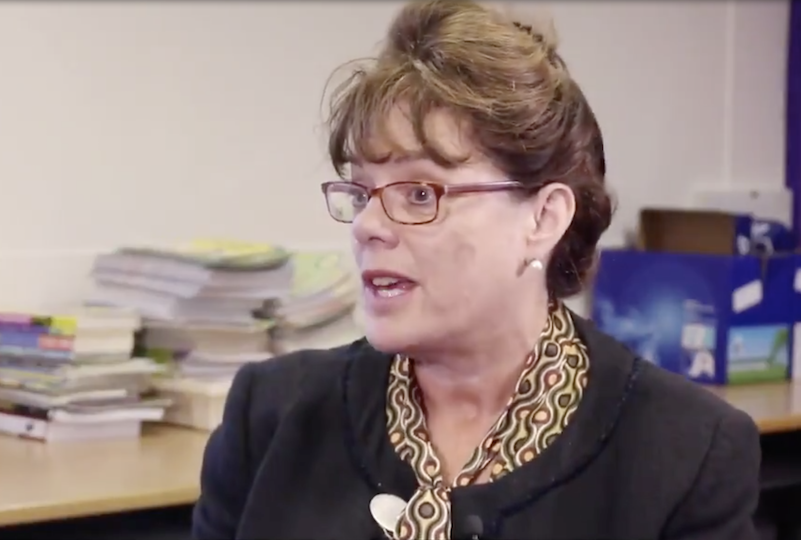


With half of the next States Assembly comprised of first-time deputies, Express has spoken to some of the outgoing States members about acclimatising to public life, securing membership to chosen committees and some of the political games that go on behind the scenes.
'Elation' was one of the overriding emotions that successful candidates reported upon their election, swiftly followed by the acknowledgement that the hard work starts straight away.
There is no real bedding-in period for the deputies elect, with committee elections starting on Friday with Policy & Resources and ending next Wednesday with the members of all other committees.
It means that being proactive and making your intentions clear to others is essential.
"The process of electing a committee is very strange," said outgoing Deputy Michelle Le Clerc.
"A lot of phone calls and meetings go on behind the scenes and it is no good waiting to be asked, you need to be forthright and contact people who you think might be elected as president of a committee to say you are interested."

Pictured: ESS President Michelle Le Clerc has been in the States for over a decade.
It is a view echoed by ESC Vice-President Richard Graham, who was originally elected to the Home Affairs Committee.
"I knew there were two candidates for Home Affairs President - Mary Lowe and Matt Fallaize - and I let it be known that I would be happy to serve them if I was elected. I also gave them a brief outline of why I thought I would be suitable."
Committee membership is not the be-all-and-end-all, however Deputy Emilie McSwiggan, who has addressed a number of questions about how the States operates in her personal blog, believes that it is the best way to enjoy success.
"The answer is almost always inside. There is more you can do, more effectively, if you are close to it," she said. "But you can also be effective from the outside – for example, amending committee policy letters to address the issues that concern you, or moving requetes to get an issue debated if the responsible committee is not moving on it."
Being on a committee requires States members to "compromise" with other members to achieve a set of proposals you can all live with.
"If, like me, you’re inclined to be more radical, then you either need to work with a team who can tolerate dissent (as I was blessed to do on all the committees I served on) or consider if you’d be more effective pushing for progress from the outside," said Deputy McSwiggan of her experience.
"But bear in mind that a lot of stuff within committee mandates never even comes to the States, so if you sit on a committee, there are lots of small victories – things you can do to make people’s life better from day to day – that you wouldn’t even get close to if you weren’t part of that committee."
Committee membership is not, of course, the only thing new States member have to worry about.

Pictured: Deputy Laurie Queripel is taking a break from politics, while his brother Lester was successful in securing re-election to the States.
Adapting to the pace of life in the States and juggling its varied demands can lead to some new deputies losing their way.
"Upon being elected, it does take a while to get to grips fully with the nature of the role of deputy and the various different parts that you have to play; i.e. committee member, constituency deputy and member of the Assembly," said Deputy Chris Green.
"During that period of learning, all you can do is work hard, ask if you don’t understand something but, most importantly, don’t forget your principles and why you came into the States in the first place - to put those principles into practice and to try to improve the island."
In order to be successful, Deputy Laurie Queripel said States members "have to leave their personalities at the door" and put the wider good above their own egos.
"Listen as well as wanting to speak. Try to work collaboratively but don't get 'sucked in'. It is very important to do one’s own research, challenge and saying no is as important as saying yes.
"It is always good to debate and act in a constructive spirit, whether welcoming or raising concerns about policy proposals. It should be about trying to identify what is in the best interests of the community, what will add value, not pushing pet projects/agendas or wanting to score points. Don't be too quick to believe your own PR."
It is a steep learning curve and the Vale deputy is unsure of how many new candidates have properly prepared themselves for the role.
"I was surprised to note that so few candidates took the opportunity to view States proceedings from the public gallery," he said.
"I attended many States meetings before the 2012 election and it helped me a great deal. I became familiar with the chamber surroundings and parliamentary procedure (amendments, requetes) which allowed me to acclimatise quite quickly. I learnt how to do things and of course in some cases, how not to do things."

Pictured: Guernsey Party Founder Mark Helyar was the highest ranking newcomer, finishing fourth at the ballot box.
And Deputy Graham said that the wave of positivity that follows an election only lasts so long. He has found himself subject to code of conduct complaints on numerous occasions, which he attributes in part to the process, which he says prevents deputies from being able to have "frank discussions" with constituents.
"You need yourself an enormously thick skin. Outside of your little bubble, there's quite a lot of people with incredibly thin skins who are waiting for the opportunity to take offence," he dismayed.
"So you have to be prepared to take a lot of criticism, but you also have to be aware that there are going to be some people who are genuinely thin-skinned and easily hurt, and others who are seeking to take offence."
Comments
Comments on this story express the views of the commentator only, not Bailiwick Publishing. We are unable to guarantee the accuracy of any of those comments.